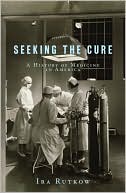Category Books
- Fiction Books & Literature
- Graphic Novels
- Horror
- Mystery & Crime
- Poetry
- Romance Books
- Science Fiction & Fantasy
- Thrillers
- Westerns
- Ages 0-2
- Ages 3-5
- Ages 6-8
- Ages 9-12
- Teens
- Children's Books
- African Americans
- Antiques & Collectibles
- Art, Architecture & Photography
- Bibles & Bible Studies
- Biography
- Business Books
- Christianity
- Computer Books & Technology Books
- Cookbooks, Food & Wine
- Crafts & Hobbies Books
- Education & Teaching
- Engineering
- Entertainment
- Foreign Languages
- Game Books
- Gay & Lesbian
- Health Books, Diet & Fitness Books
- History
- Home & Garden
- Humor Books
- Judaism & Judaica
- Law
- Medical Books
- New Age & Spirituality
- Nonfiction
- Parenting & Family
- Pets
- Philosophy
- Political Books & Current Events Books
- Psychology & Psychotherapy
- Reference
- Religion Books
- Science & Nature
- Self Improvement
- Sex & Relationships
- Social Sciences
- Sports & Adventure
- Study Guides & Test Prep
- Travel
- True Crime
- Weddings
- Women's Studies
Seeking the Cure: A History of Medicine in America »

Authors: Ira Rutkow
ISBN-13: 9781416538288, ISBN-10: 1416538283
Format: Hardcover
Publisher: Simon & Schuster Adult Publishing Group
Date Published: April 2010
Edition: (Non-applicable)
Author Biography: Ira Rutkow
Ira Rutkow is a general surgeon and historian of American medicine. He also holds a doctorate of public health from Johns Hopkins University. Among Dr. Rutkow’s books on medical history, his Surgery: An Illustrated History was selected as a New York Times Notable Book of the Year. Dr. Rutkow’s recent works include Bleeding Blue and Gray, a narrative history of Civil War medicine, and James A. Garfield, a political biography and reappraisal of the medical aspects of Garfield’s assassination. Dr. Rutkow and his wife divide their time between New York City and their farm in the Hudson Valley.
Book Synopsis
A timely, authoritative, and entertaining history of medicine in America by an eminent physician
Despite all that has been written and said about American medicine, narrative accounts of its history are uncommon. Until Ira Rutkow’s Seeking the Cure, there have been no modern works, either for the lay reader or the physician, that convey the extraordinary story of medicine in the United States. Yet for more than three centuries, the flowering of medicine—its triumphal progress from ignorance to science—has proven crucial to Americans’ under-standing of their country and themselves.
Seeking the Cure tells the tale of American medicine with a series of little-known anecdotes that bring to life the grand and unceasing struggle by physicians to shed unsound, if venerated, beliefs and practices and adopt new medicines and treatments, often in the face of controversy and scorn. Rutkow expertly weaves the stories of individual doctors—what they believed and how they practiced—with the economic, political, and social issues facing the nation. Among the book’s many historical personages are Cotton Mather, Benjamin Franklin, George Washington (whose timely adoption of a controversial medical practice probably saved the Continental Army), Benjamin Rush, James Garfield (who was killed by his doctors, not by an assassin’s bullet), and Joseph Lister. The book touches such diverse topics as smallpox and the Revolutionary War, the establishment of the first medical schools, medicine during the Civil War, railroad medicine and the beginnings of specialization, the rise of the medical-industrial complex, and the thrilling yet costly advent of modern disease-curing technologies utterly unimaginable a generation ago, such as gene therapies, body scanners, and robotic surgeries.
In our time of spirited national debate over the future of American health care amid a seemingly infinite flow of new medical discoveries and pharmaceutical products, Rutkow’s account provides readers with an essential historic, social, and even philosophical context. Working in the grand American literary tradition established by such eminent writer-doctors as Oliver Wendell Holmes, William Carlos Williams, Sherwin Nuland, and Oliver Sacks, he combines the historian’s perspective with the physician’s seasoned expertise.
Capacious, learned, and gracefully told, Seeking the Cure will satisfy armchair historians and doctors alike, for, as Rutkow shows, the history of American medicine is a portrait of America itself.
Publishers Weekly
Surgeon and historian Rutkow (Bleeding Blue and Gray) takes on an ambitious survey of “the events of medicine within the full tapestry of the American experience.” It’s a daunting piece of terrain, and Rutkow traverses it with ease through the stories of an array of fabulous physicians. Among them is William Morton, the self-taught dentist who in 1846 demonstrated ether’s effectiveness in relieving the pain of surgery. Also present are William Welch, the “dean of American medicine,” who emphasized the novel idea of the importance of laboratory research to medicine. Abraham Flexner was a muckraker about the failings of medical training in the vein of his contemporary, Upton Sinclair.By the mid-20th century, Rutkow writes, “Science had finally vanquished the bugbears of superstition and tradition. Physicians turned a once-suspect profession into a respected one. America, as well, had achieved prestige as a place where new treatments were found. The trends in the late 20th century are just as exhilarating, Rutkow finds, albeit far more complex and troubling: “Modern medicine has become an arena of trade-offs, a balance between costs, organization, expectations, and ethics.”Rutkow reminds us just how satisfying history can be in the hands of a good storyteller. (Apr.)
Table of Contents
1 Colonial medicine 7
2 Democratizaton of healing 31
3 Emergence of modern medicine 61
4 Consolidation of power 90
5 Scientific advancement 117
6 Professional authority 147
7 Challenges of success 173
8 Ascendancy 209
9 Supremacy 239
10 Transformation 273
Epilogue 304
Acknowledgments 309
Notes 311
Selected bibliography 336
Index 346
Subjects

